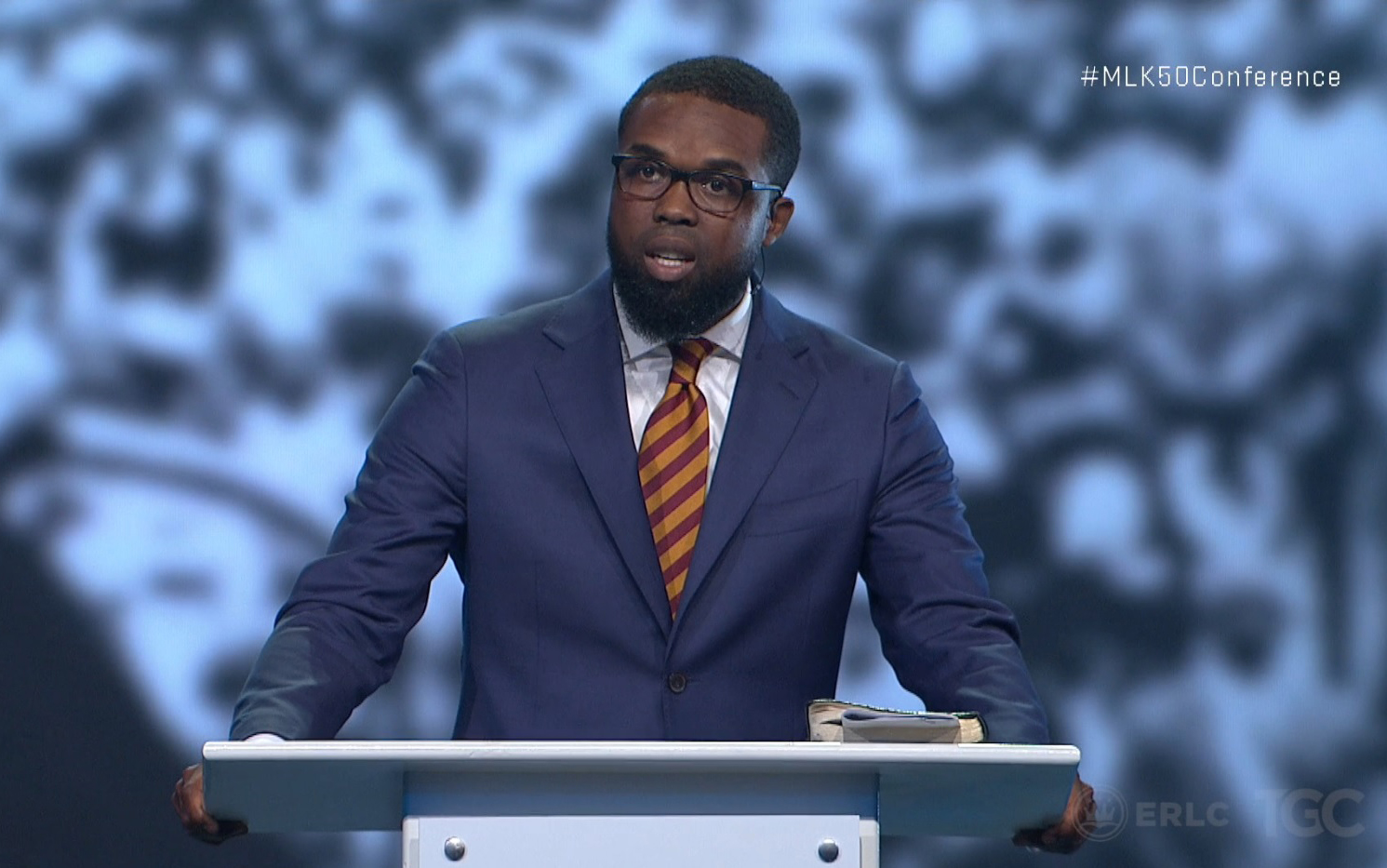
NASHVILLE (BP) — On the 50th anniversary of America’s Fair Housing Act, Baptists noted progress in eliminating race-based housing discrimination while also citing a need for further improvement.
 Economist and ethicist Craig Mitchell told Baptist Press the volume of housing discrimination today isn’t “anywhere near” what it was “50 years ago or 30 years ago” thanks in part to the Fair Housing Act signed into law by President Lyndon Johnson on April 11, 1968.
Economist and ethicist Craig Mitchell told Baptist Press the volume of housing discrimination today isn’t “anywhere near” what it was “50 years ago or 30 years ago” thanks in part to the Fair Housing Act signed into law by President Lyndon Johnson on April 11, 1968.
The bill outlawed discrimination in rental, sale and financing of housing based on race, religion and national origin.
Yet housing challenges remain. At the MLK50 conference cosponsored by the Ethics & Religious Liberty Commission, Chicago pastor Charlie Dates said a failure to combat housing discrimination is among black Christians’ frustrations “with our white evangelical brothers and sisters.”
“We want you to tell your city fathers” the discriminatory housing practices of “contract leasing, redlining and neighborhood improvement laws — intended to keep us living in segregated quarters — [were] offensive to God and that you wouldn’t stand for [them], by the strength of the Lord Jesus Christ,” Dates, pastor of Chicago’s Progressive Baptist Church, said in an April 3 address.
Some of the practices he referenced were among those outlawed by the Fair Housing Act.
Contract leasing was a practice by which lenders would “pretend” to sell a home to African Americans but actually lease it, Dates said in an interview with BP. Redlining referenced some financial institutions’ practice of refusing to grant loans for housing in minority neighborhoods. Neighborhood improvement laws have helped raise property values in urban neighborhoods, but at times they have driven prices too high for poor, minority residents to afford.
Dates said members of the church he pastors still experience forms of housing discrimination.
For example, low property values in many minority neighborhoods result in less property tax revenue and, in turn, less money for local public schools than is available in affluent neighborhoods, Dates said. Mortgage insurance also is more expensive in some minority neighborhoods, he said, and the comparatively lower wages of educated black workers may prevent them from moving into the same neighborhoods as their white peers.
According to an April 11 NPR report, the Fair Housing Act “has only been selectively enforced,” and “a lot of the same neighborhoods in big cities that were redlined in the 1930s and 1940s have been locked out of the economy. They don’t benefit during boom times, and they’re devastated during downturns.”
Dates, a speaker at this year’s Southern Baptist Convention Pastors’ Conference, said, “It’s primarily the black church that is arguing against this” type of housing discrimination. In some instances, white churches have left racially transitioning neighborhoods “rather than living in those neighborhoods [and] protesting.”
Anglo believers should ask government officials to invest funds for “quality housing, grocery stores and schools … outside their neighborhoods” and in “the neighborhoods where people need them the most,” Dates said. Anglo churches may want to consider partnering with African American churches to help struggling neighborhoods, he said, and some Anglo believers may want to consider moving into black neighborhoods.
Mitchell agreed some housing discrimination still exists and can be “as simple as telling people ‘this place of housing is no longer available'” or “arbitrarily raising the price so the person who applies for housing may not get it.”
For churches, combatting housing discrimination should include reminders from the pulpit that “we serve a God who knows what’s in our hearts, and we need to do right by all men because of it,” said Mitchell, an African American who has taught at Southwestern Baptist Theological Seminary and Criswell College.
Byron Day, president of the National African American Fellowship (NAAF) of the SBC, said he is not aware of any explicit housing discrimination in the region where he ministers — a Maryland county that is “a little more expensive.” The Fair Housing Act “has certainly helped,” he said.
However, “cognitive bias” against blacks and other minorities may cause them to be denied housing loans at times, Day, pastor of Emmanuel Baptist Church in Laurel, Md., told BP.
“Having roundtable discussions with local [government] representatives” is one way for Christians to address housing discrimination, Day said, adding pastors should address racism generally as it arises in the biblical texts they preach.
Former NAAF President K. Marshall Williams said he “deeply appreciate[s] the struggle and the sacrifices made by many on this the 50th anniversary the Fair Housing Act,” but “I am grieving that housing discrimination is still problematic and another evidence of systemic and institutional racism in our land.”
“In a multiplicity of our cities, urban gentrification seems to be not just about improving housing and making neighborhoods safe, but it’s essentially taking over and redefining cultures and urban environments all over the nation, primarily in predominantly black and brown neighborhoods,” Williams, pastor of Nazarene Baptist Church in Philadelphia, told BP in written comments.
“The intentional displacement of many who are poor, without service or recourse, resulting in increased poverty, emotional distress and hopelessness and in some cases homelessness, is an abomination to our God,” Williams said.
He urged churches and conventions to “stand up for righteousness by withdrawing their monies from banking institutions that are known to not adhere to fair lending practices which are still plaguing our members and our communities.”
“We need to lead not just in orthodoxy but in orthopraxy by being light in the midst of a society that is obsessed with the accumulation of this world’s goods of perishable product at the expense of the least of these,” Williams said.












